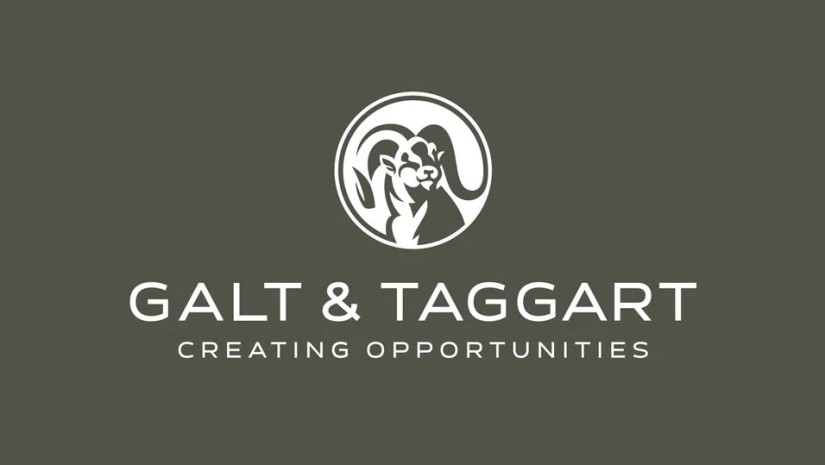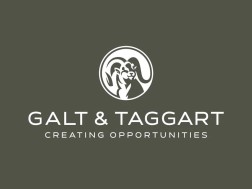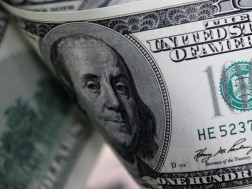Galt&Taggart published Global Markets Weekly Update. According to the document,
USA
Google (-7.55% last week) Earnings:
Google parent Alphabet delivered a beat on both the top and bottom lines. The company praised its search and cloud businesses, announced a $0.20 cash divided, and reported better-than-expected advertising revenue. But network revenue, services revenue, along with subscriptions, platforms and devices revenue disappointed. Shares ticked lower. US stocks slipped on Tuesday as investors weighed early reports on a marquee earnings day, with Big Tech results from Alphabet and Tesla in focus after hours. Shares of Google parent company Alphabet fell 3.4% in premarket trading. Google stock initially rose on Q2 results, but then reversed down as management signaled higher expenses in the September quarter, curtailing margin growth. In Q2, revenue growth in the search advertising business and cloud computing unit came in above expectations, but YouTube missed. Also, Chief Financial Officer Ruth Porat said Alphabet would hike capital spending on self-driving automotive business Waymo. Porat said Alphabet will spend at least $5 billion more on the Waymo project. The company’s
expenses were higher than expected, search advertising came in at $48.51 billion, topping estimates of 12% growth to $47.71 billion.
Meanwhile, Google posted YouTube ad revenue of $8.66 billion, missing estimates of 16% growth to $8.93 billion. Further, Google reported Q2 cloud-computing revenue of $10.35 billion, above estimates of 27% growth to $10.215 billion. In addition, investors have been focused on operating expenses and margins as capital spending jumps amid investments in artificial intelligence. In Q2, operating margins rose to 32% from 29% a year earlier, topping estimates for 31% operating margins. Also in Q2, capital spending came in at $13.19 billion, slightly ahead of consensus estimates of $12.3 billion, and higher than Q1 spending of $12 billion. The benchmark S&P 500 (^GSPC) and Dow Jones Industrial Average (^DJI) dropped about 0.2% and 0.1%, respectively, with the tech-heavy Nasdaq Composite (^IXIC) finishing the day just below the flatline.
Earnings: $1.89 a share vs. $1.84 per share expected
Revenue: $84.74 billion vs. $84.19 billion expected
Here are other numbers Wall Street was watching:
YouTube advertising revenue: $8.66 billion vs. $8.93 billion, according to StreetAccount
Google Cloud revenue: $10.35 billion vs. $10.20 billion, according to StreetAccount
Traffic acquisition costs (TAC): $13.39 billion vs. $13.54 billion, according to StreetAccount
OpenAI:
OpenAI is venturing into a territory long dominated by Google with the selective launch of SearchGPT, an artificial intelligence-powered search engine with real-time access to information from the internet.The move, announced on Thursday, also places the AI giant in competition with its largest backer Microsoft's (MSFT), opens new tab Bing search and emerging services such as Perplexity — a search-focused AI chatbot firm backed by Amazon (AMZN), opens new tab founder Jeff Bezos and semiconductor giant Nvidia (NVDA), opens new tab. Shares of Google's parent company Alphabet (GOOGL.), opens new tab ended 3% lower on Thursday after OpenAI's announcement. OpenAI said it has opened sign-ups for the new tool, which is currently in the prototype stage and is being tested with a small group of users and publishers. The company plans to integrate the best features from the search tool into ChatGPT in the future. "AI-powered search tools from OpenAI and Perplexity re-affirm search as a content engagement model but pressure Google to be better at its own game," Canaccord Genuity analyst Kingsley Crane said. Google dominates the search engine market with a 91.1% share as of June, according to web analytics firm Statcounter. SearchGPT will provide summarized search results with source links in response to user queries, OpenAI said in a blog post. Users will also be able to ask follow-up questions and receive contextual responses. SearchGPT looks similar to Google's Search experience, with a centered search bar in the middle of the screen. But there are key differences. The examples shown appear to result in more concise answers than a traditional Google, with summarized answers and links included at the bottom. It also shows more limited results, unlike Google, which has pages of related links. The company will give publishers access to tools for managing how their content appears in SearchGPT results. News Corp (NWSA.O), opens new tab and The Atlantic are publishing partners for SearchGPT. SearchGPT signals a closer collaboration between publishers and OpenAI, following content licensing agreements with major organizations like Associated Press, News Corp and Axel Springer. "Newer AI-powered search providers could face challenges of their own, with Perplexity already facing pending legal action from publishers like Wired and Forbes, and Condé Nast," said Crane. Major search engines have been trying to integrate AI into search since ChatGPT first launched in November 2022. Microsoft, through its early investment, adopted OpenAI technology for its Bing search engine, while Google rolled out AI-powered summaries for the wider public at its developer conference in May. That's intentional, according to the company's announcement. OpenAI said in its blog post that "getting answers on the web can take a lot of effort," and often requires multiple tries to "get relevant results."
Europe
Tech, luxury goods earnings in focus
In local currency terms, the pan-European STOXX Europe 600 Index ended 0.55% higher, largely thanks to a rally on Friday as investors focused on a better day of quarterly earnings reports. Among major Continental indexes, Germany’s DAX gained 1.35%, France’s CAC 40 Index lost 0.22%, and Italy’s FTSE MIB gave back 1.27%. The UK’s FTSE 100 Index rose 1.59%.
European equity markets sagged midweek as earnings in the technology and luxury goods sectors weighed on returns. Tech was particularly weak thanks to negative sentiment spilling over from steep declines in Tesla and other “Magnificent Seven” mega-cap stocks in the U.S.
Heading into Friday’s official opening ceremonies for the summer Olympics in Paris, French President Emmanuel Macron called for a political truce during the games. Travel disruptions caused by Friday’s arson attacks on France’s high-speed rail infrastructure marred the opening to some degree but didn’t appear to affect the CAC 40 Index for the day.
Eurozone sovereign bond yields decrease
Core eurozone government bond yields continued to decrease as weaker-than-expected readings from the region’s flash purchasing managers indexes boosted expectations for monetary easing. Markets priced in 50 basis points (0.50 percentage point) of interest rate cuts from the European Central Bank (ECB) over the remainder of 2024 for the first time since early June. A broadly risk-off tone in markets was helpful to safe-haven German sovereign debt, but French and Italian government bond yields widened relative to Germany as political developments continued to fuel fiscal concerns.
UK chancellor to provide results of public finances audit
UK Chancellor of the Exchequer Rachel Reeves said that she would announce the findings of an audit of public finances at the end of July. Press reports have speculated that the review could reveal a deficit of as much as GBP 20 billion, prompting tax increases.
The Bank of England (BoE) revealed a new facility to provide funding for nonbank financial institutions designed to avoid the government bond market volatility experienced two years ago during the short tenure of former Prime Minister Liz Truss. UK economic data have been mixed, leading to speculation about whether or not the BoE will follow the ECB and make its first interest rate cut at its August policy meeting.
Japan
Yen strengthens, weighing on exporters
Japan’s stock markets registered sharp weekly losses, with the Nikkei 225 Index falling 6.0% and the broader TOPIX Index down 5.6%. Japanese technology stocks remained under pressure as the shares of U.S. mega-cap technology companies continued to sell off.
The yen strengthened for the third successive week, to around JPY 154.2 against the USD, from a prior JPY 157.45, continuing to hurt the profit outlook for Japanese exporters. This follows indications that the government intervened in the foreign exchange markets earlier in July to prop up the Japanese currency. Yen strength was also attributed to the unwinding of short positions as well as growing anticipation of narrowing U.S.-Japan interest rate differentials.
The yield on the 10-year Japanese government bond rose to 1.06% from 1.04% at the end of the previous week. Investors looked ahead to the Bank of Japan’s (BoJ’s) July 30–31 monetary policy meeting, speculating whether the central bank would raise interest rates at the same time as it details plans for the tapering of its massive bond purchases. The tapering is likely to be gradual and take place in several stages to avoid causing an unwelcome spike in yields. The BoJ has come under pressure to raise rates again in July to defend the currency and narrow the difference between domestic and foreign bond yields.
Inflation ticks higher
On the economic data front, the latest inflation print kept the door open for a potential rate hike, with the Tokyo core consumer price index rising 2.2% year on year in July, in line with expectations and up from 2.1% in June. However, weakness in private consumption has been cited as a constraint against raising rates. Flash Purchasing Managers’ Index data, compiled by au Jibun Bank, showed activity at Japan’s private sector firms returning to growth in July, with service providers leading the expansion, while manufacturers saw a marginal reduction in output.
China
Chinese equities fell after unexpected rate cuts by the central bank failed to instill confidence in the economic outlook. The Shanghai Composite Index declined 3.07% while the blue chip CSI 300 was down 3.67%. In Hong Kong, the benchmark Hang Seng Index retreated 2.28%, according to FactSet.
The People’s Bank of China cut its medium-term lending facility (MLF) by 20 basis points to 2.3%, its first reduction since August 2023, after holding the rate steady at its regularly scheduled operation on July 15. The move came on Monday, after the central bank reduced its seven-day reverse repo rate, a key short-term policy rate, by 10 basis points to 1.7%. Shortly afterward, Chinese banks cut their one- and five-year loan prime rates by 10 basis points to 3.35% and 3.85%, respectively, making it cheaper for consumers to take out mortgages and other loans.
The string of rate cuts pointed to Beijing’s growing urgency to support growth after China’s gross domestic product undershot expectations in the second quarter. Other data also highlighted weakness in the economy as retail sales, industrial production, and property investment slowed in June. Many analysts anticipate that the central bank will continue to loosen policy and potentially reduce its reserve requirement ratio to bolster the economy.
A lack of significant policy initiatives following the Third Plenum, a once-in-five-year meeting of top officials in the ruling Communist Party, also contributed to bearish sentiment. During the three-day meeting that ended July 18, President Xi Jinping vowed to make “high-quality development” the main priority for China but provided no detailed policies, disappointing those who hoped for measures to bolster consumption and end a yearslong property slump.
















